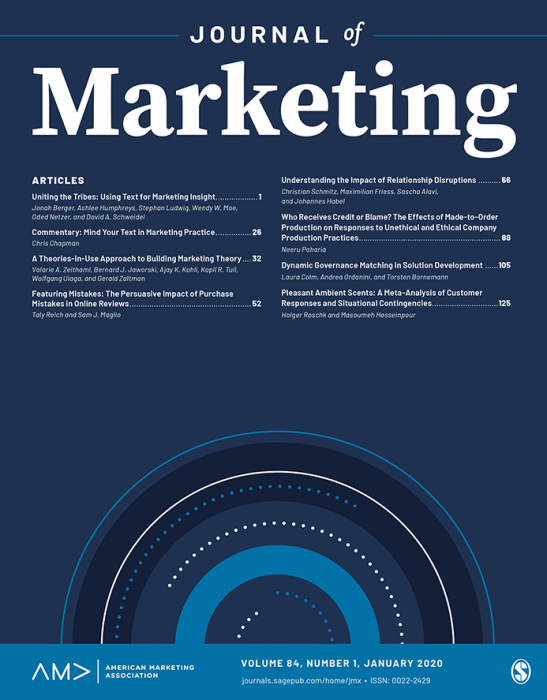会员制免运费的有效性:消费者购买行为与收益贡献的实证研究
IF 11.5
1区 管理学
Q1 BUSINESS
引用次数: 0
摘要
会员制免运费(MFS)已越来越多地被在线零售商采用。然而,其有效性尚未得到充分研究。本研究利用一家在线零售商提供的消费者交易数据集,采用差异中差的叠加方法来量化MFS对消费者购买行为的登记效应及其对零售商的净收入贡献。有趣的是,加入MFS并没有提高普通消费者在加入之初的支出,因为他们把大订单分成了小订单。在此期间,由于运输成本的增加,零售商没有获得增量净收入。然而,免运费的好处可能会形成一个转换障碍,促使消费者随着时间的推移更频繁地购买更大的订单。它最终会导致支出和收入的增加。MFS还增加了会员的购买种类和冲动购买。此外,作者发现,对于轻度买家、寻求多样化的人以及那些愿意在注册前支付运费的人来说,注册后的净收入贡献有更大的增长。令人惊讶的是,MFS对大买家(传统的最具价值消费者)的收入贡献产生了负面影响。此外,MFS可以通过减少客户流失有效地加强消费者与零售商的关系。本文章由计算机程序翻译,如有差异,请以英文原文为准。
The Effectiveness of Membership-Based Free Shipping: An Empirical Investigation of Consumers’ Purchase Behaviors and Revenue Contribution
Membership-based free shipping (MFS) has been increasingly adopted by online retailers. However, its effectiveness is understudied. This study leverages a consumer transaction data set provided by an online retailer and uses a stacked difference-in-differences approach to quantify the enrollment effect of MFS on consumers’ purchase behaviors and their net revenue contribution to the retailer. Interestingly, MFS enrollment does not lift average consumers’ spending at the beginning of the enrollment, as they break large orders into smaller ones. Retailers do not gain incremental net revenue due to the increased shipping costs during this period. However, the free shipping benefit may build a switching barrier that motivates consumers to purchase more often with larger order sizes over time. It eventually leads to increased spending and revenue contribution. MFS also increases members’ purchase variety and impulse purchases. In addition, the authors find that there is a greater increase in net revenue contribution after enrollment for light buyers, variety seekers, and those who are willing to pay shipping fees before enrollment. Surprisingly, MFS has a negative impact on the revenue contribution of heavy buyers, the conventional best-value consumers. Moreover, MFS can effectively strengthen consumer–retailer relationships by reducing customer churn.
求助全文
通过发布文献求助,成功后即可免费获取论文全文。
去求助
来源期刊

Journal of Marketing
BUSINESS-
CiteScore
24.10
自引率
5.40%
发文量
49
期刊介绍:
Founded in 1936,the Journal of Marketing (JM) serves as a premier outlet for substantive research in marketing. JM is dedicated to developing and disseminating knowledge about real-world marketing questions, catering to scholars, educators, managers, policy makers, consumers, and other global societal stakeholders. Over the years,JM has played a crucial role in shaping the content and boundaries of the marketing discipline.
 求助内容:
求助内容: 应助结果提醒方式:
应助结果提醒方式:


